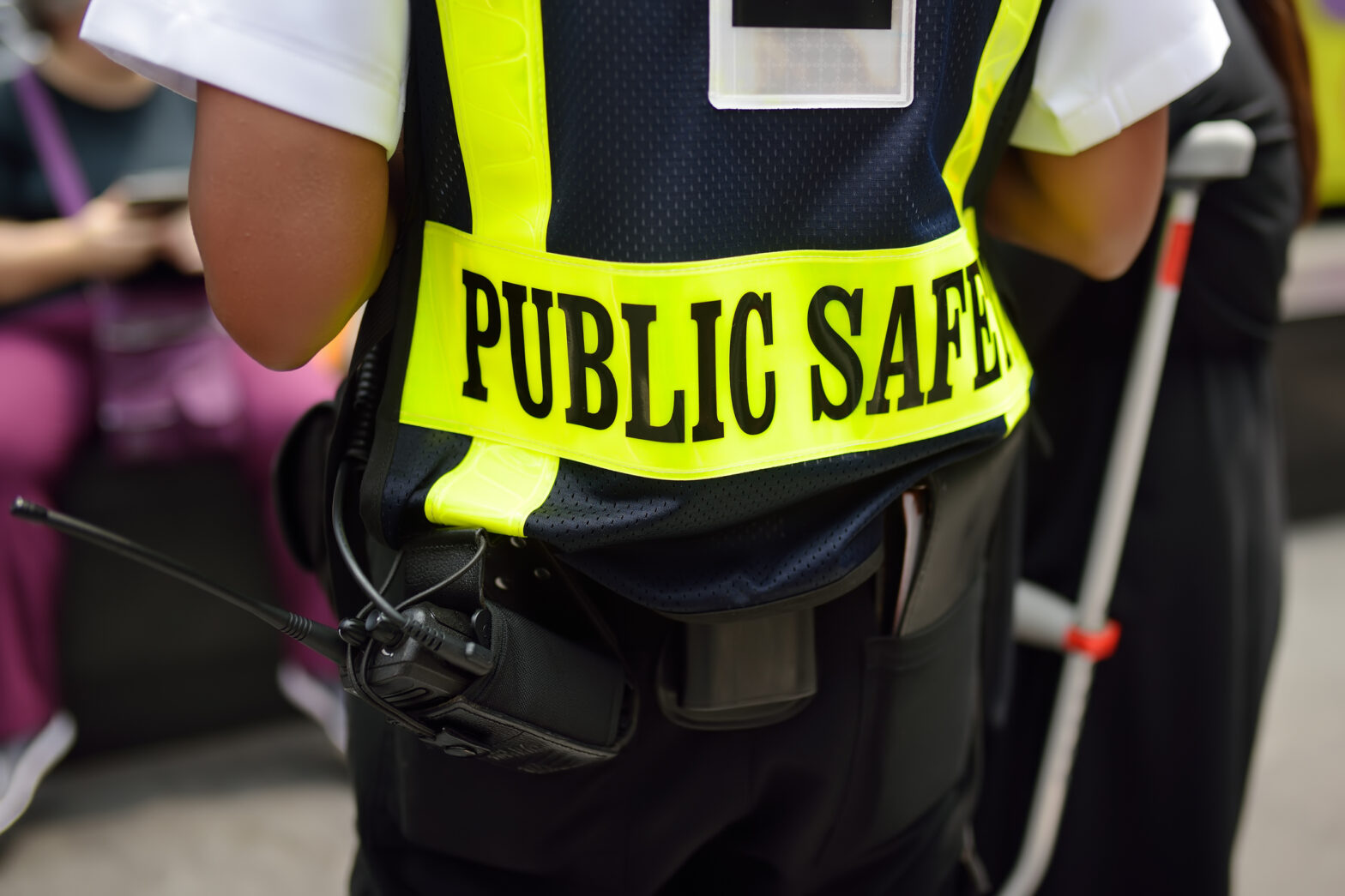The coalition Yes4Minneapolis gathered more than 20,000 signatures to get its proposal onto voter’s ballots. If a majority of voters approve, the city’s charter would no longer require Minneapolis to have a police department. Instead, MPD would be replaced by a Department of Public Safety and a new commissioner to lead it.
—
Racial Reckoning reporter Tiffany Bui interviewed JaNaé Bates, communications director for Yes4Minneapolis, to find out more about the charter amendment that will be on the Minneapolis ballot this November. Here’s an excerpt of their conversation.
TB: What was the process to craft the charter language amendment?
JB: It’s been a long process, because the campaign itself is a coalition. So that means that there are organizations involved, there are families across Minneapolis, their small businesses, there’s church communities.
But to be clear, like this charter amendment, the biggest thing that it does is remove a barrier. Right? So currently, we have a barrier in the city charter for Minneapolis, that prevents the people of Minneapolis, the residents of Minneapolis making any real, any real concrete changes to how policing is done, because it puts the city in a box to where we really only have a
police-only model. And so when we wanted to create this language that folks get to vote on in November, we want to be clear that it is really just about removing the barrier to make it possible for people to use all of the tools in our tool belt to keep us safe.
So that means yes, most certainly, you know, licensed peace officers are known as police officers when they’re necessary, but also knowing that we call on them for way too many things that they aren’t necessarily qualified, trained for or disciplined enough to handle. And so we also want to make sure that we’re implementing proven strategies, you know, violence intervention and prevention, licensed professionals and experts in a broad range of fields and strategies.
And so putting the language together to make it clear that that’s what it does, was really important to us. And it was important that community was involved every step of the way.
TB: The charter amendment seeks to remove the section of the charter that requires the city maintain a police force, and instead replace it with a Department of Public Safety. How would this be different than a police department?
JB: Well, right now our police department in Minneapolis is set up so that it gets to control all of the resources in the city. And that was intentional. So the police union, the police Federation, they they wrote this charter with a couple of lawmakers back in 1961. So this is, you know, before we even had a Civil Rights Movement, so a lot of the things that have happened in the city has shifted and changed. It’s become far more diverse, and I mean, diversity across gender, race, income, and ethnicity.
And so, as the city becomes more diverse as the city is growing, we want to make sure that all of our policies and our practices match to the city that we’re becoming and right now our hands are tied because with the current charter, we are only able to implement police-enforced strategies. And while most certainly we understand that there are communities and folks regard police as something that helps to create safe communities for some, we also know that right now the current Minneapolis Police Department has not been able to do that.
And so what this new department will do is make it possible to move officers who, you know, are ready to create, you know, to create safe communities with community create accountability, and transparency, which is something we do not have the teeth to be able to do in the city right now under the current charter, and to get them to be able to work hand in hand, with community based strategies with professionals and personnel and expert based strategies. So where they’re not competing for resources, they’re not competing for power. And there’s not a hierarchy where the police make all the calls and all the say, with no accountability and get to do things with impunity. And so this new department makes it possible for every single person in Minneapolis to be able to be safe, regardless of what part of the city they live in, what race they are, what religion they choose to have or not have. Everyone gets to be able to be a part of that community together.
TB: As I understand it, the work of Yes4Mpls stemmed from advocacy by Black Visions Collective, which has pushed to defund and abolish the police – which we saw some Council members pledge to do in Powderhorn Park last year, though that hasn’t really manifested. Would the Department of Public Safety include police officers?
JB: The new Department of Public Safety would include police as necessary. And I want to be explicit that while most certainly there are organizations like Black Visions Collective and Reclaim the Block that are a part of the coalition, there are also organizations like labor unions like SEIU, Local 26. And Isaiah, and Faith in Minnesota, and the Minnesota Federation of Teachers. All of these folks, all of these different businesses and organizations, and congregations, they all have a similar mission, and that’s about keeping people safe.
When we’re seeing the violence that has been raised in the city. A child should be able to bounce on a trampoline, a grandmother shouldn’t have to worry about them being hurt, you know, maybe that they might fall and bump their elbow, but not that they’d actually experienced any community harm. In the same way, someone should be able to go to the store, and not think that a $20 bill would cost them their life. And so that city is possible in the city of Minneapolis, and the Department of Public Safety is going to help make that happen.
While there are, you know, some organizations and some folks who who have been calling for very specific measures on how to get there, but the Yes for Minneapolis campaign, again, is really just about removing the barriers so that the people of Minneapolis, the communities, the families, those who are directly impacted by the day to day actions of the police and other community members who are their neighbors, that they get to make the say that they get to make a call. And they’re not beholden to, quite frankly, a law that was written by the police union 60 plus years ago, that they’re not beholden to an old and outdated way that doesn’t actually fit the city that they’re becoming, and that they need to be.
TB: What steps need to be taken to ensure that the new Department of Public Safety would not replicate the same institutional problems of the Minneapolis Police Department?
JB: So that will absolutely require community. I know that there are city council members, there are community groups that are coming together creating the strategies and talking to the professionals that are needed to really build up this department to be exactly what it needs to be. … But making sure that the department has all of the different people and strategies that it needs to really be able to thrive, that’s going to happen through ordinance processes, it’s going to happen through community members talking to their city council members and making sure that their voices are being heard that their input is being raised.
It’s going to be an ongoing process, but one that we get to do together, one that the people of Minneapolis get to have a say about, and one that quite frankly, what we’re finding in community, folks are excited for and hungry for. It is incredibly exciting to know that the residents of Minneapolis get to be history makers, that they get to have, you know, the prophetic imagination and vision for what can, quite frankly, be a model that will be replicated across the country, as we’re saying, you know, more and more black people being harmed names killed and surveyed by the police. We’re also seeing community members step up and say that this is not okay, and that we can do something about it.
And again, it’s not, you know, this is most certainly not an anti police movement, but instead a pro-safety movement. And we can do this with folks who believe in reform, folks who believe in abolition, if that’s their jam, folks who believe in really – the bare bones is just for folks who believe in keeping one another safe. This is a big tent for a whole lot of people with a whole lot of different ideologies. But in the end, they just want to be able to go to work, take care of their families, enjoy some play and joy. And that’s what this campaign is about.
This interview has been edited for clarity.
Subscribe to hear Daily Updates in your podcast feed
- Potter Found Guilty in Death of Daunte WrightAfter three days of deliberation a jury found former Brooklyn Center police officer Kimberly Potter guilty of two counts of manslaughter in the death of Daunte Wright. Feven Gerezgiher reports
- Potter Jury Continues DeliberationsAs jury deliberation continues in the Kim Potter trial, many are evaluating the state of racial justice in Minnesota. We talk to former Hennepin County Chief Public Defender Mary Moriarty. Chioma Uwagwu reports
- Kim Potters’ TearsKim Potter’s crying in court is more than an expression of remorse; it’s part of a history of white women weaponizing their tears against people of color. Tiffany Bui reports.
- Jury Deliberations Underway in Potter TrialThe state’s prosecution and the defense made their closing arguments Monday. Georgia Fort reports.






1 comment
Comments are closed.